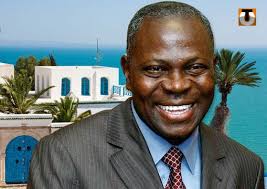Comment: Embattled IFAD president faces tough questions
Insider View
|
9 December 2021

IFAD President Gilbert Houngbo
ROME -- As the beleaguered President of IFAD, Gilbert Houngbo, confronts the UN agency's Executive Board next week, he may have to address a number of uncomfortable questions which hopefully will be asked, IFAD watchers say.
The turmoil has climaxed as the result of a vitriolic letter of the Staff Association which puts the Togolese president on the stand for a rash of mismanagement and deeply unethical issues at the Rome-based development bank for small farmers, the observers say.
These issues are not new and they have been building up since he took the helm of IFAD, and they are entirely of his own making, diplomatic sources add.
M. Houngbo is a former prime minister but he is not a technical person who can claim to have an agriculture or food background. Nor is he a manager, judging about the way he has been managing staff over the past five years. He is essentially an administrator with very large personal ambitions.
He has focused his reign on pleasing his external audience, especially the Board, telling them and promising them all they wanted to hear. Whether he could deliver or not was totally secondary, as he knew that in this business you can get away with anything. The Board is generally pleased with him as a welcome change from the previous President (Kanayo Nwanze) who was known for alienating the Board and dismissing many of their constant requests.
One of the ways to keep external audiences, donors and partners happy was to use IFAD's recruitment tool to distribute jobs for the boys (and girls). IFAD's HR rules for recruitment have been completely corrupted under Houngbo and almost any appointment has to go through him and is at his discretion. He can overrule the decision of the appointment committees and HR has essentially become a department under his yoke. The quality and transparency of new recruitments has suffered.
Internally, his tenure arguably has been disastrous. The worst is the way he is managing the institution and particularly the staff. Staff is seen by Hungbo as a liability rather than an asset. His total lack of empathy is also detrimental to his capacity to communicate on personnel matters and probably reflects the fact that his trust levels are very low. Probably the handling of the decentralization reform is the biggest blunder of his administration. He saw decentralization as a numbers game, not realizing that IFAD is too small an organization to afford the kind of decentralization that peer institutions have done at for example the World Bank or the African Development Bank.
As a result, IFAD HQ has been depleted and in the field the institution is far from being able to claim better country presence and effectiveness (except for few hubs). Staff that could not go to the field for family reason were sent anyway or had to resign while staff that were ready to go, remained in HQ. Staff that had developed a globally recognized expertise in a specific field, became overnight experts on something else.
This was seen as an unnecessary sign of disrespect for the staff and their careers, the partners, and the institution at large. The President's well-known lack of empathy prevents him from listening to staff or mingling around (or at least pretend). Having an informal lunch or coffee in the cafeteria, or visiting staff in their offices is not something for his style.
Maybe the Board could have some further thinking about the effectiveness of the whistleblower, ethics, ombudsman and other complains tools and policies, as the risk of retaliation is still perceived as too high and these entities are very ineffective.
For the Staff Association to write such a letter it took guts and courage. The staff is not asking for any special benefits or entitlements, they only want a better managed institution where cronyism and incompetence can be marginalized rather than mainstreamed. Let's hope that someone listens.
But right now the President's mind evidently is not in IFAD any more as he is probably already thinking at what he could do next, after having taken the International Labour Organization (ILO) top job for which he is campaigning.
jf
© COPYRIGHT ITALIAN INSIDER
UNAUTHORISED REPRODUCTION FORBIDDEN


